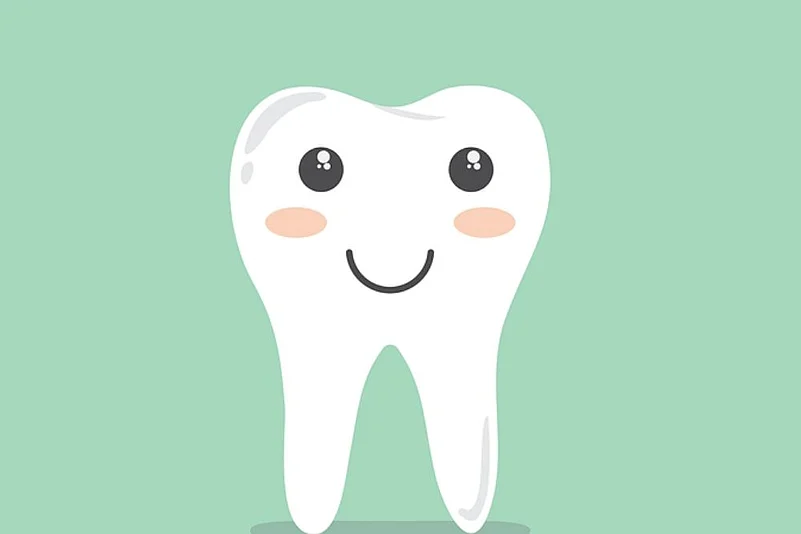These are unique and unprecedented times – we have been quarantined for the first time in modern Indian history, and physical and mental activity is at its minimum for most of us. Taking care of our mind and body has never been of such paramount importance, as we all need to ensure that we come out stronger once normal life resumes. While we are engaged in working from home, reading books, exercising at home or just lazing around, we are also indulging ourselves in cooking and binge eating. And while many of us do try to ensure proper nutrition, we often tend to ignore a critical part of our body: our teeth. Dental problems can be quite painful. Here are some ways you can avoid or handle dental emergencies during this lockdown.
Advertisement
SEVERE TOOTHACHE
•You should first rinse your mouth with warm saline water to see if the pain subsides. Apply Ice pack (cold compressions) in case of swelling.
•Clove oil or clove: It is a traditional remedy for numbing the nerves – soak cotton with two drops of clove oil and place it against the tooth until pain recedes. In case clove oil is not
available, you can use a bit of powdered clove or chew a whole clove to release clove oil and keep it in place up to half an hour or until the pain subsides.
•Peppermint Tea also has a numbing effect similar to clove. Put 1 teaspoon dried peppermint leaves in a cup of water and boil for 20 minutes. After the tea cools, swish it around in your mouth then spit it out or swallow. You can also use Peppermint oil if available.
Advertisement
•Rinsing the mouth with hydrogen peroxide helps kill bacteria and relieve some discomfort. Use a 3% hydrogen peroxide solution which is only for rinsing – do not swallow, spit it out and then rinse the mouth several times with plain water.
•OTC medications such as Acetaminophen or diclofenac will also help with the acute pain.
You also need to check if there is a food particle or other debris wedged alongside the tooth and if that is leading to pain. If so, try flossing around the tooth. Please avoid using a sharp
object in the mouth as it may aggravate your pain.
If the toothache is severe, increases while lying down, or worsens with hot food, you may need additional help. Do schedule an online consultation with your dentist.
BROKEN/ KNOCKED OUT TOOTH
If your tooth is broken, try to keep the broken piece safely with you. Your dentist will be able to bond the broken piece back to your teeth. How you handle the broken piece is imperative.
You should carefully pick the tooth by the crown or the top - take care not to touch the root - and carefully rinse it without scrubbing. If possible, reinsert the tooth in the socket, if you
unable to reinsert, place the tooth in a small container dipped in milk and contact your dentist quickly to increase the chances of saving your tooth.
Advertisement
In case a large piece is broken, your tooth may bleed because of exposed dental pulp. In such case, you may need an emergency root canal. Consider calling your dentist immediately. If the tooth is broken because of an injury, use cold compressions for any facial swelling if present.
Maintaining good oral hygiene:
•Brush twice daily: The layer of plaque deposits in every 12 hours, thus, brushing twice helps removing it. Plaque has millions of bacteria, it can cause decay of teeth & gum problems.
•Brush Thoroughly: You should spend at least 2- 3 minutes on brushing. Take your time, moving the toothbrush in gentle, circular motions to remove plaque.
Advertisement
•Use Fluoride Toothpaste: Fluoride is absorbed into the enamel and helps to repair it by replenishing the lost calcium and phosphorous required to keep your teeth hard.
•Floss your teeth daily: Flossing helps clean in-between the teeth. When you don't floss, you're at risk for two major dental issues in your mouth: Gingivitis and cavities between your teeth
•Limit sugary and acidic food: Bacteria in your mouth use sugar from food and drinks to produce acids that dissolve and damage the teeth. These acids cause cavities (tooth decay). Frequent snacking on foods high in sugar increases the amount of time your teeth are exposed to the dissolving effects of various acids. The most common source of liquid sugar is sugary soft drinks, sports drinks, energy drinks and juices. In addition to sugar, these drinks have high levels of acids that can cause tooth decay.
Advertisement
•Avoid sticky foods: "Sticky foods" are those that provide long-lasting sources of sugar, such as hard candies, breath mints and lollipops. These are also linked to tooth decay.
•Drink lots of water: Water helps you keep your mouth clean and fight dry mouth. Water washes away leftover food and residue that cavity-causing bacteria are looking for. It also dilutes the acids produced by the bacteria.
How to Avoid Potential Emergencies
The best way to prevent dental emergencies is to stay proactive in your oral hygiene and have routine check-ups. Good nutrition begins with healthy teeth.
Avoid chewing ice, popcorn kernels and hard candy, all of which can crack a tooth.
Advertisement
A simple tip - use scissors, NEVER your teeth, to cut or tear things; it may lead to a chipped tooth.
We sincerely wish that you don’t have to face any dental emergency during the COVID-19 lockdown. But if this situation should arise, you can schedule an appointment for online consultation here.
(The author is a Cosmetic Dentist and Implantologist with extensive experience, and a Reiki Level 2 healer)




















